If you're looking for a job in cybersecurity, it can be hard to know the top skills that employers are looking for. We've put together a list of the 9 most in-demand skills for cybersecurity jobs:
Internal Auditing
NIST Cybersecurity Framework
Network Security
Authentication
Threat Analysis
Risk Assessment and Management
Cryptography
Security Operations
Information Security/ Assurance
Whether you're just starting in your cybersecurity career or looking to update your skill set, knowing which skills are in demand will help you stay ahead of the curve. Let's go over the top 9 cybersecurity skills one by one:

1. Internal Auditing
Internal Auditing is a key skill in being able to access an organization's security posture and identify areas of improvement. This ensures that organizations are accomplishing their objectives while minimizing their risk exposure.
Why is Internal Auditing a Wanted Skill for Most Cybersecurity Jobs?
Cybercrime is a fast-growing area of crime. Internal Auditing equips cybersecurity professionals to tackle it head-on. When a cybersecurity professional audits an organization's security, they'll get a general idea of where possible risks might be.
Some of these risk areas are computers, cloud computing, smart devices, third-party services, and bring-your-own-device (BYOD).
Internal auditing skills can also help businesses figure out how well their security protocol is working. Some of these are policies about passwords, ways to encrypt data, firewalls, and so on.
Additionally, internal auditors also helps the organization develop a culture of security. They ensure that employees are aware of their role in keeping the company secure. When employees are properly educated on cybersecurity best practices, they are less likely to fall for social engineering attacks.
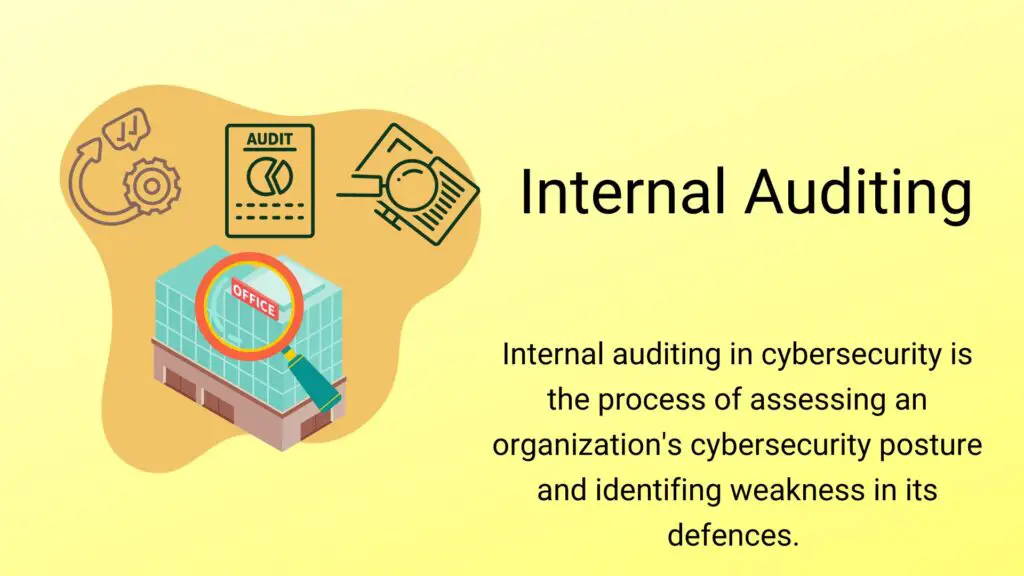
Cybersecurity positions that require internal auditing technical cybersecurity skills:
Now that we've seen all the reasons why internal auditing is a valuable skill for any cybersecurity professional to have, let's take a look at some of the specific positions that may require this skill:
IT Auditor (entry-level)
Cybersecurity Specialist (entry-level)
Cybersecurity Consultant (mid-level)
Cybersecurity Analyst (mid-level)
Cybersecurity Manager (advanced)
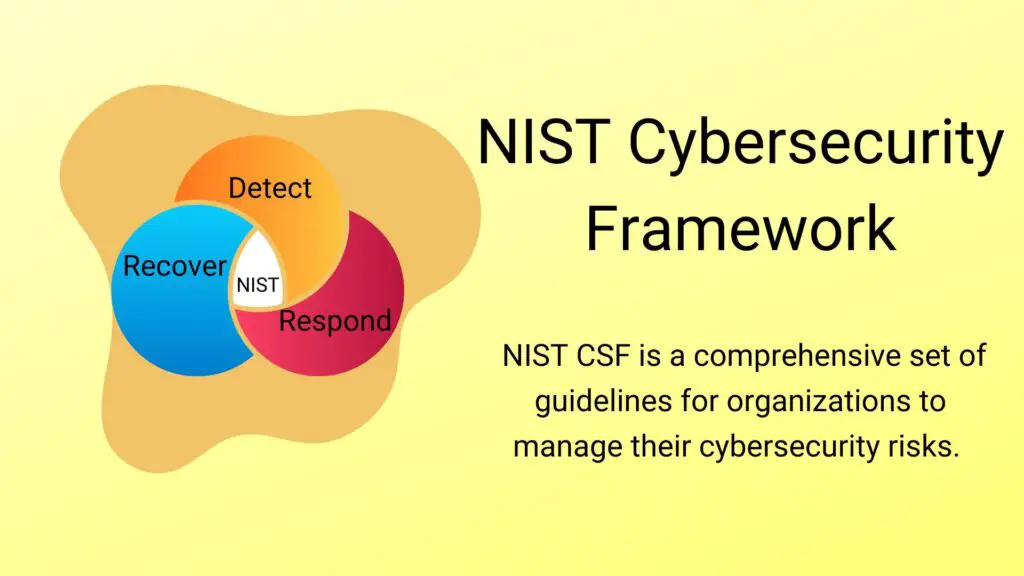
2. NIST Cybersecurity Framework
Security breaches dominate the news. Just recently, household names like Twitter, Red Cross, and Uber have all been victims of data breaches.
As these stories make their way into the public consciousness, one thing is becoming abundantly clear: organizations need to strengthen their defenses.
One framework that can help them do this is the National Institute of Standards and Technology Cybersecurity Framework (NIST CSF). The NIST CSF is a comprehensive set of guidelines for organizations to manage their cybersecurity risks.
Why do most cybersecurity jobs require NIST CSF knowledge?
Because the NIST CSF has become the de facto standard for managing cybersecurity risks.
NIST CSF is organized around five core functions: identify, protect, detect, respond, and recover. When combined, these functions create an effective cybersecurity risk management program.
As a result, many companies expect their cybersecurity professionals to be familiar with the NIST CSF, and some even mandate that their vendors and partners use it as well.
NIST Cybersecurity Framework Jobs:
Many jobs require the skill and knowledge to implement the NIST CSF. Some of these jobs include:
IT Auditor (entry-level)
Cybersecurity Consultant (mid-level)
Cybersecurity Analyst (mid-level)
Cybersecurity Manager (advanced)
Cybersecurity Engineer (advanced)
Cybersecurity Architect (advanced)
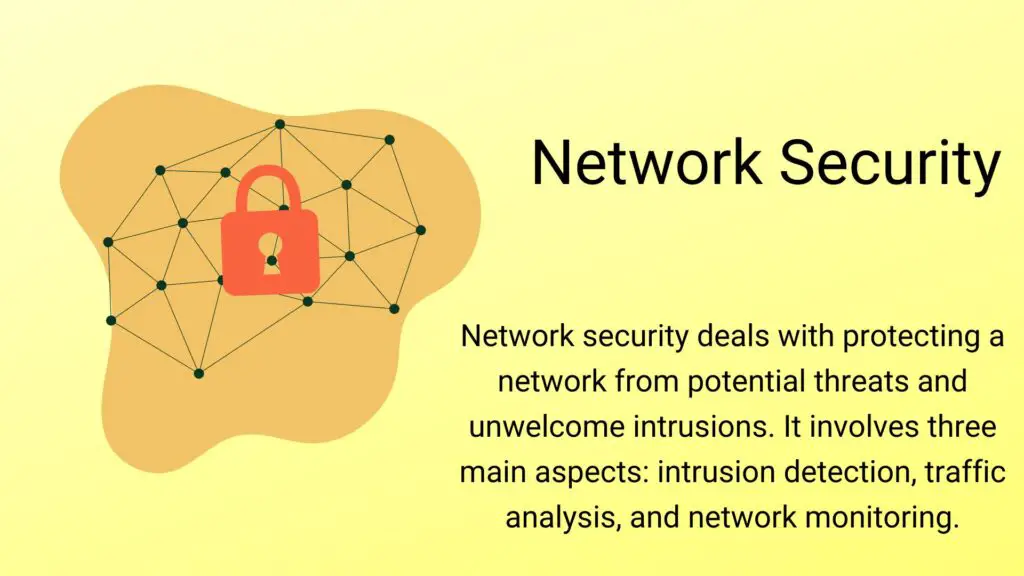
3. Network Security
Network security is a practical field that deals with protecting a network from potential threats and unwelcome intrusions. It involves three main aspects: intrusion detection, traffic analysis, and network monitoring.
Why do most cybersecurity jobs require technical knowledge/skills in network security?
Individuals with strong technical knowledge in network security can help businesses and organizations:
Identify potential vulnerabilities in their network
Design comprehensive security plans to protect networks against potential threats
Monitor traffic and activity for signs of intrusion or malicious activity
Respond quickly and effectively to any incidents that do occur.
Network security is a critical part of any organization's cybersecurity posture, and as such, technical skills in this field are one of the most sought-after skills in the cybersecurity job marketplace.
Network Security Jobs:
A few examples of cybersecurity jobs that require experience in network security:
Network Administrator (entry-level)
Incident & Intrusion Analyst (entry-level)
Cybersecurity Specialist (entry-level)
Cybersecurity Consultant (mid-level)
Cybersecurity Analyst (mid-level)
Cybersecurity Engineer (advanced)
Cybersecurity Architect (advanced)
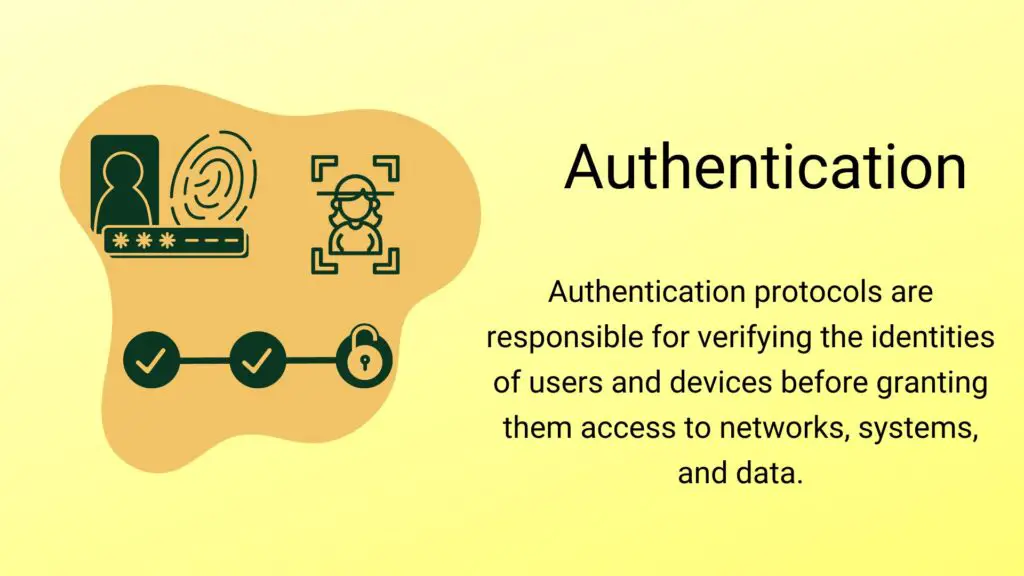
4. Authentication
Authentication protocols are responsible for verifying the identities of users and devices before granting them access to networks, systems, and data. There are various methods to achieve this including passwords, tokens, and biometrics.
Why do most cybersecurity jobs require technical knowledge/skills in authentication protocols?
Employers are increasingly looking for cybersecurity professionals who are well-versed in authentication protocols because of two main reasons.
First, firms of all sizes gather and keep sensitive data, from customer records to confidential internal documents. In the wrong hands, this data can be used to conduct fraud, steal identities, or harm the firm. Authentication protects an organization's data by preventing unauthorized access.
Second, it helps ensure compliance with industry regulations. In many industries, managing confidential information is strictly regulated.
For example, HIPAA requires healthcare companies to employ proper security measures to protect patient data. A company that doesn't meet these rules could risk fines and irreparable reputation damage.
Authentication Cybersecurity Jobs:
Cybersecurity positions jobs that require knowledge of authentication protocols:
IT Auditor (entry-level)
Incident & Intrusion Analyst (entry-level)
Cybersecurity Specialist (entry-level)
Cybersecurity Consultant (mid-level)
Cybersecurity Analyst (mid-level)
Penetration & Vulnerability Tester (mid-level)
Cybersecurity Architect (advanced)
Cybersecurity Specialist (advanced)
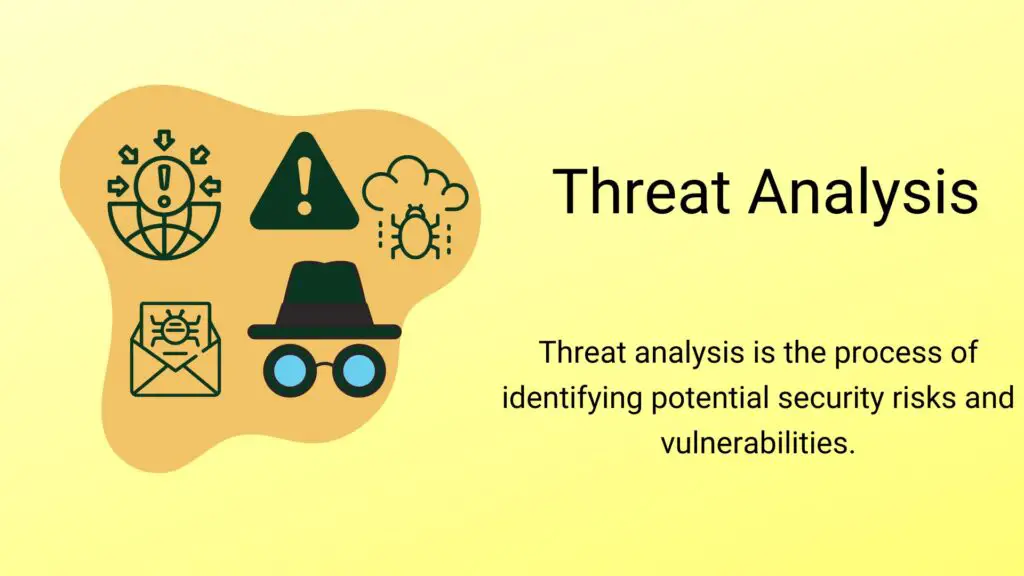
5. Threat Analysis
A threat analysis typically begins with a comprehensive assessment of the resources that need to be protected—including hardware, software, data, and people.
Once these assets have been identified, the next step is to identify the threats that could potentially compromise them.
After the threats have been identified, the next step is to assess the potential impact of each one. This includes taking into account factors such as the sensitivity of the data involved, the cost of replacement or repair, and the likelihood of occurrence.
Armed with this information, decision-makers can then begin to formulate a security strategy that includes both preventative measures (such as firewalls and intrusion detection systems) and corrective measures (such as backups and disaster recovery plans).
Why do most cybersecurity jobs require technical knowledge/skills in threat analysis?
Organizations face an ever-growing number of cyber threats and hackers. In most cases, by the time an organization detects an intrusion or malware infection, it's often too late- the damage has already been done. Threat analysis makes organizations take a proactive approach to security and implement controls that will detect and prevent intrusions before they happen.
Threat Analysis Cybersecurity Jobs:
Cybersecurity positions jobs that require knowledge of threat analysis:
IT Auditor (entry-level)
Incident & Intrusion Analyst (entry-level)
Cybersecurity Specialist (entry-level)
Cybersecurity Consultant (mid-level)
Penetration & Vulnerability Tester (mid-level)
Cybersecurity Manager (advanced)
Cybersecurity Architect (advanced)
Cybersecurity Specialist (advanced)
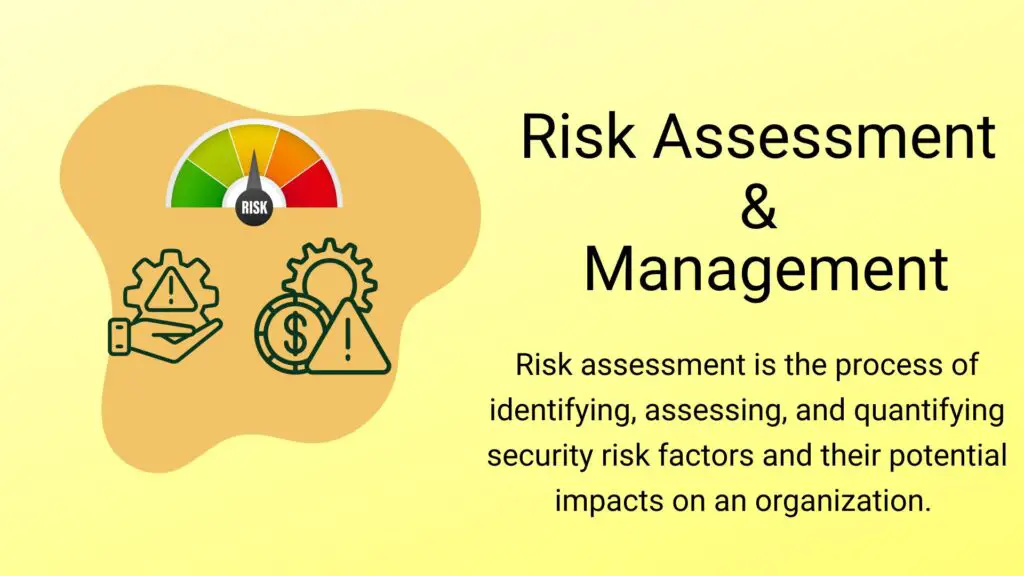
6. Risk Assessment and Management
Risk assessment is the process of identifying, assessing, and quantifying security risk factors and their potential impacts on an organization. Once the risks have been identified, risk management processes are put in place to manage those risks.
Why do most cybersecurity jobs require technical knowledge/skills in risk assessment & management?
Organizations and businesses need risk accessors to identify and mitigate potential security threats before they can do damage. Also, in the event of a data breach or cyberattack, such individuals can quickly evaluate the severity of the situation, and develop a plan of action for mitigating damage.
Risk Assessment & Management Cybersecurity Jobs:
Cybersecurity positions that require experience with Risk Assessment & Management:
IT Auditor (entry-level)
Incident & Intrusion Analyst (entry-level)
Cybersecurity Specialist (entry-level)
Cybersecurity Consultant (mid-level)
Penetration & Vulnerability Tester (mid-level)
Cybersecurity Manager (advanced)
Cybersecurity Architect (advanced)
Cybersecurity Specialist (advanced)
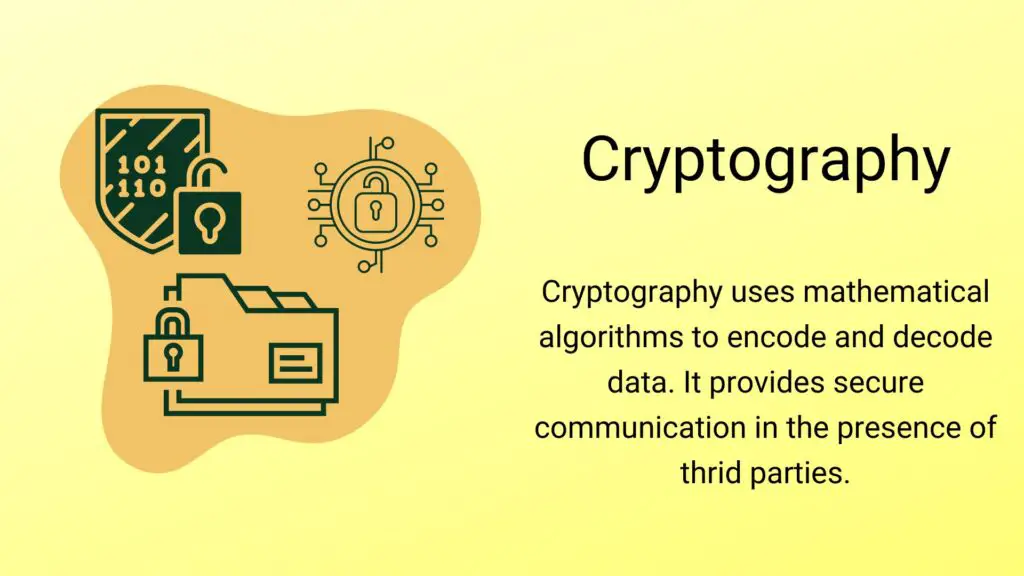
7. Cryptography
Cryptography is the practice of secure communication in the presence of third parties. It is used in a variety of applications, including email, file sharing, and secure communications.
Cryptography uses mathematical algorithms to encode and decode data. These algorithms are designed to be very difficult to break, even by computers.
Why do most cybersecurity jobs require technical knowledge/skills in cryptography?
Companies looking to hire cybersecurity professionals place a high value on individuals who are skilled in cryptography because organizations are increasingly relying on cryptographic techniques to protect their data from being accessed, understood, and modified by unauthorized parties.
Also, firms ensure the integrity of their communications by using cryptography to authenticate messages and verify the identity of senders and recipients.
Cryptography Cybersecurity Jobs:
Cybersecurity positions that require experience with Cryptography:
Cyber Crime Analyst (entry-level)
Incident & Intrusion Analyst (entry-level)
Cybersecurity Specialist (entry-level)
Cybersecurity Consultant (mid-level)
Penetration & Vulnerability Tester (mid-level)
Cybersecurity Manager (advanced)
Cybersecurity Architect (advanced)
Cybersecurity Specialist (advanced)
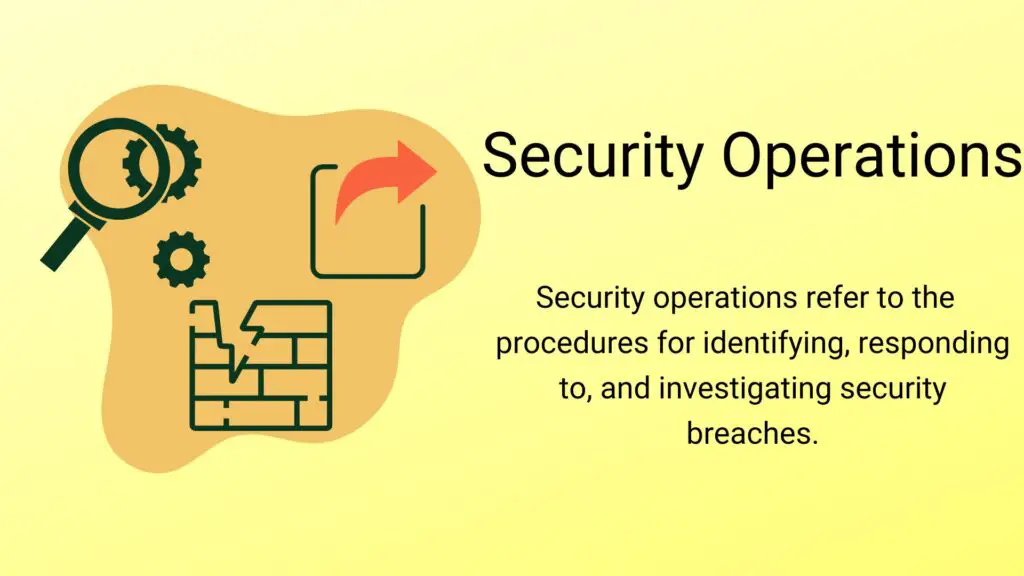
8. Security Operations
Security operations refer to the processes of not only putting countermeasures in place but also precisely determining what it is we need to protect and against which threats. Procedures for identifying, responding to, and investigating security breaches are also part of security operations.
Why do most cybersecurity jobs require technical knowledge/skills in security operations?
Individuals with experience in security operations are in high demand because they have the skills and knowledge necessary for identifying potential threats, investigating incidents, and responding to them promptly.
Security operations cybersecurity jobs:
Cybersecurity positions that require experience with security operations:
Cyber Crime Analyst (entry-level)
Incident & Intrusion Analyst (entry-level)
Cybersecurity Specialist (entry-level)
Cybersecurity Consultant (mid-level)
Penetration & Vulnerability Tester (mid-level)
Cybersecurity Architect (advanced)
Cybersecurity Specialist (advanced)
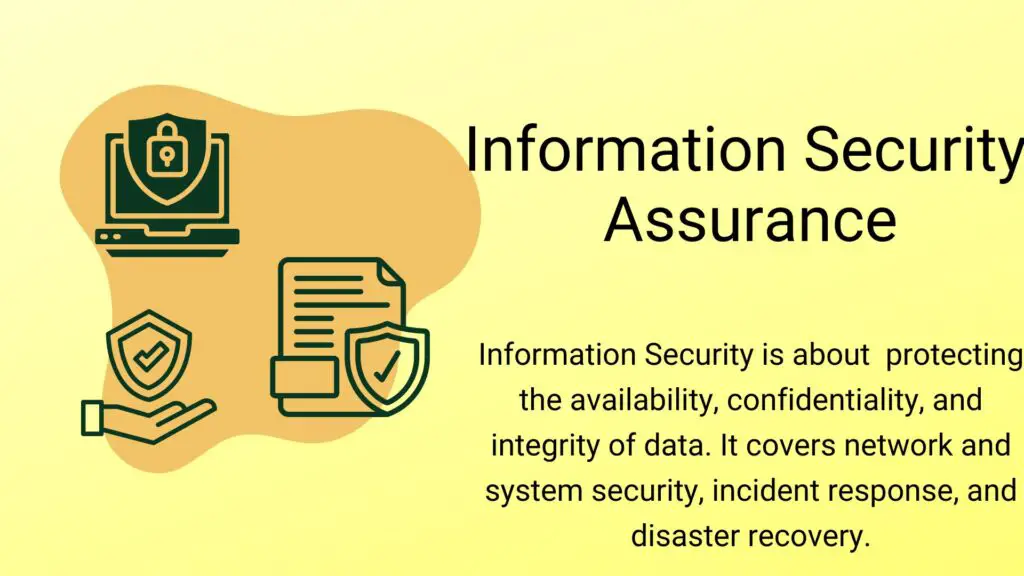
9. Information Security / Assurance
The Information Security field protects the availability, confidentiality, and integrity of data. It covers network and system security, incident response, and disaster recovery.
Why do most cybersecurity jobs require technical knowledge/skills in information security?
With the ever-growing number of data breaches, employers are looking for candidates who are skilled in information security to protect their organization's data.
Information security includes measures taken to protect the organization's data from unauthorized access, use, disclosure, interception, or destruction of data.
It also helps safeguard an organization's systems and networks from being compromised by malware such as viruses, worms, Trojans, spyware, and rootkits.
Information Security / Assurance Cybersecurity Jobs:
Cybersecurity positions that require experience with Information Security / Assurance:
Cyber Crime Analyst (entry-level)
IT Auditor (entry-level)
Incident & Intrusion Analyst (entry-level)
Cybersecurity Specialist (entry-level)
Cybersecurity Consultant (mid-level)
Penetration & Vulnerability Tester (mid-level)
Cybersecurity Architect (advanced)
Cybersecurity Specialist (advanced)
Cybersecurity is a growing field with many different specialties. The nine skills listed above are some of the most important skills for cybersecurity jobs. If you want to pursue a career in cybersecurity, make sure you have the required skills and certifications. With the right skills and experience, you can find a job in this rewarding field.